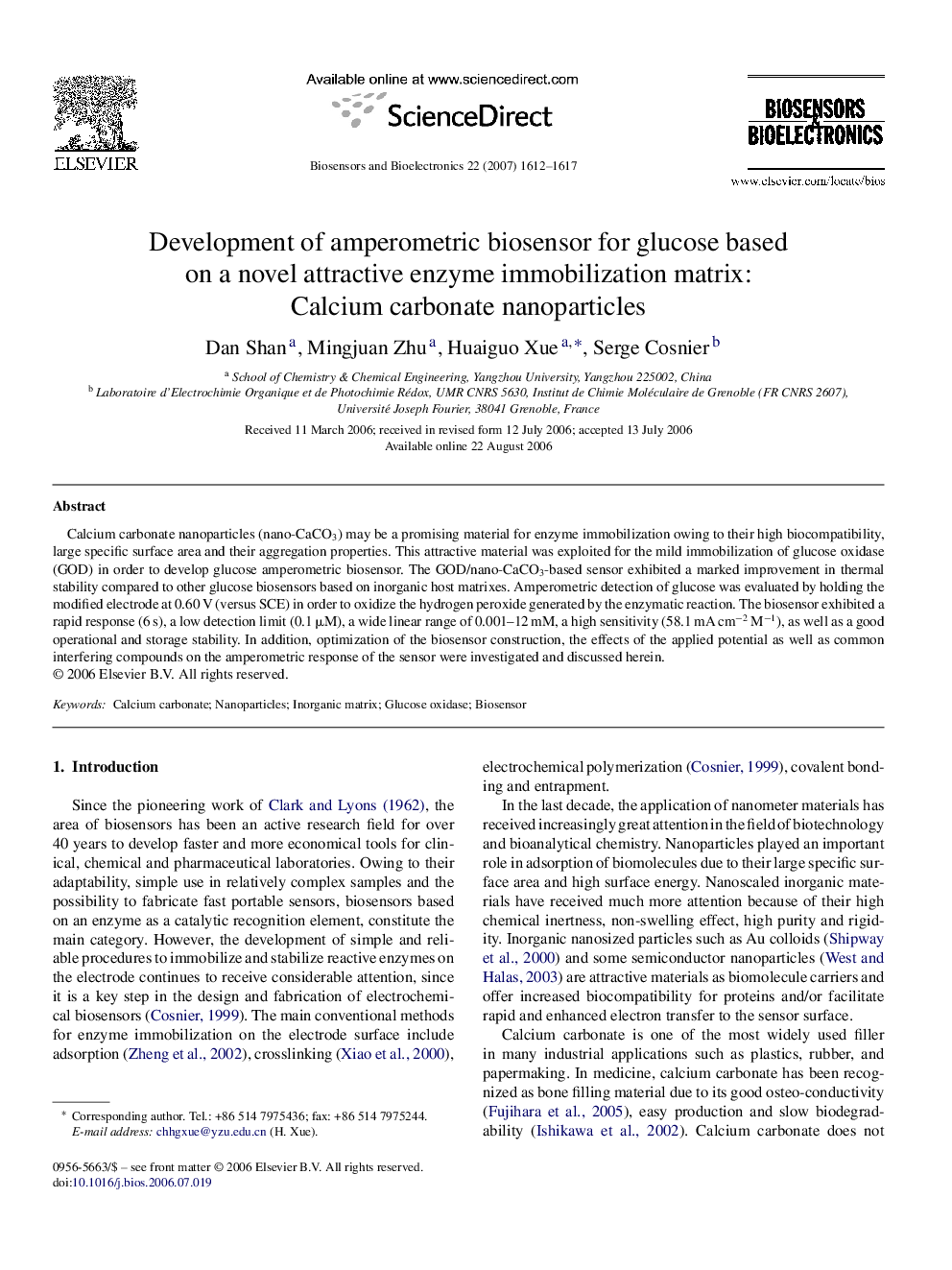| Article ID | Journal | Published Year | Pages | File Type |
|---|---|---|---|---|
| 870417 | Biosensors and Bioelectronics | 2007 | 6 Pages |
Calcium carbonate nanoparticles (nano-CaCO3) may be a promising material for enzyme immobilization owing to their high biocompatibility, large specific surface area and their aggregation properties. This attractive material was exploited for the mild immobilization of glucose oxidase (GOD) in order to develop glucose amperometric biosensor. The GOD/nano-CaCO3-based sensor exhibited a marked improvement in thermal stability compared to other glucose biosensors based on inorganic host matrixes. Amperometric detection of glucose was evaluated by holding the modified electrode at 0.60 V (versus SCE) in order to oxidize the hydrogen peroxide generated by the enzymatic reaction. The biosensor exhibited a rapid response (6 s), a low detection limit (0.1 μM), a wide linear range of 0.001–12 mM, a high sensitivity (58.1 mA cm−2 M−1), as well as a good operational and storage stability. In addition, optimization of the biosensor construction, the effects of the applied potential as well as common interfering compounds on the amperometric response of the sensor were investigated and discussed herein.
